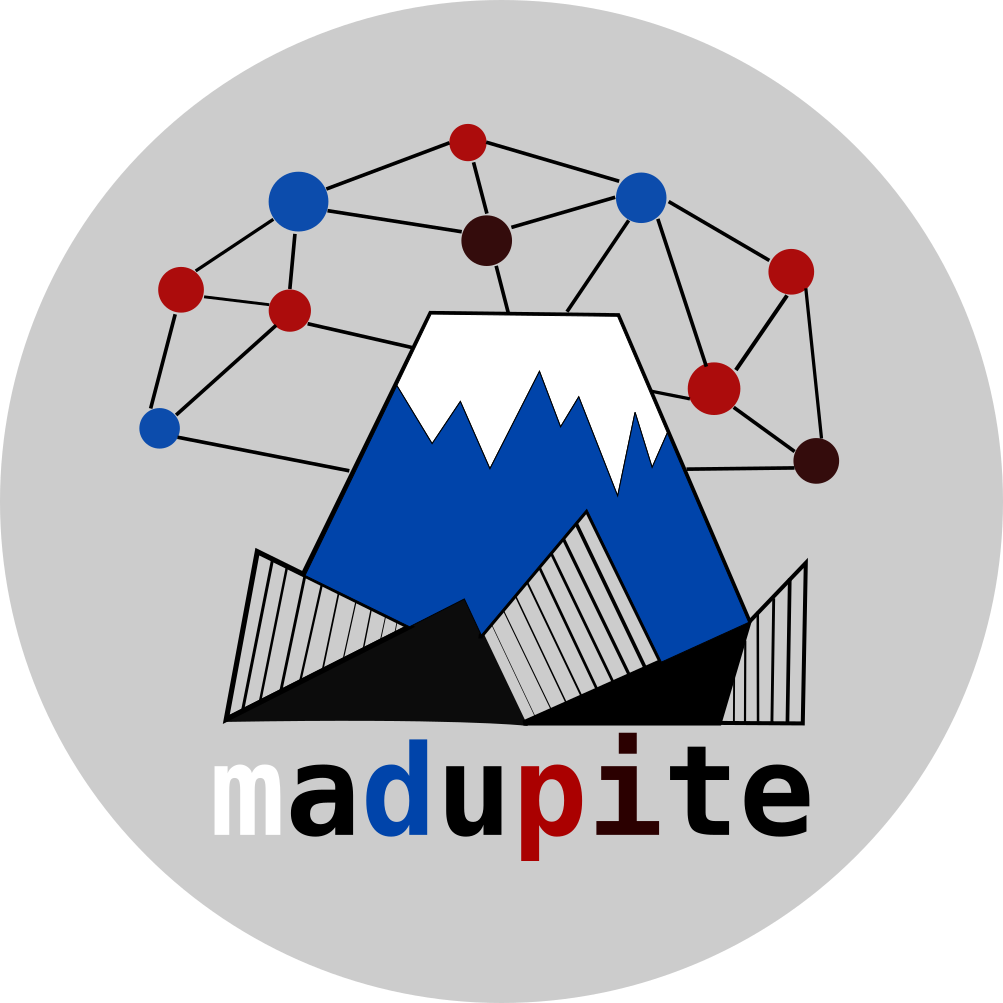Algorithm#
Dynamic programming (DP) comprises algorithms to compute the optimal cost and an optimal policy of an MDP. The main DP methods are value iteration (VI) and policy iteration (PI) [Bertsekas]. As dynamic programming suffers from the so called curse of dimensionality, there is need for solution methods which scale and are distributable.
Various approximation methods have been developed to address this issue, e.g., optimistic/modified policy iteration (OPI) approximates the expensive policy evaluation step in PI using a finite number VI iterations.
madupite relies on a novel class of algorithms called inexact policy iteration (iPI) methods which are based on an inexact policy evaluation step. We refer to Sec. 4 in [Gargiani2024] for a detailed description of iPI. A key advantage of iPI’s flexibility is that depending on the problem structure, one can choose the most suitable approximation method for the policy evaluation step.
madupite exploits this flexibiliy by allowing the user to select any iterative method available in PETSc via the -ksp_type option (see Options). Available methods include GMRES, BiCGStab, TFQMR etc. A full list of available solvers can be found here. Some of these methods show superior convergence properties for almost undiscounted MDPs \((\gamma \approx 1)\) than VI.
Does madupite still support standard dynamic programming algorithms such as VI and PI?#
Yes, but be aware of their performance limitations. Since iPI is a more general class of algorithms, you can retrieve PI, VI and OPI by setting the inner solver and tolerances accordingly.
Policy Iteration (PI): To evaluate the policy exactly, use singular value decomposition as a preconditioner. The choice of inner solver (KSP type) in this case becomes irrelevant. You can therefore simply leave it unspecified which defaults to GMRES. PETSc only supports SVD for sequential execution!
$ python ex1.py -pc_type svd
Value Iteration (VI): Since a VI step for policy evaluation is equivalent to one iteration of Richardson method with a scaling factor of 1, you can retrieve VI by limiting the number of inner iterations to 1 and selecting Richardson method as inner solver (Proposition 19 in [Gargiani2024]).
$ python ex1.py -ksp_type richardson -ksp_richardson_scale 1.0 -alpha 1e-40 -max_iter_ksp 1
Optimistic Policy Iteration (OPI): You can retrieve OPI by selecting the same parameters as for VI, but with a number of inner iterations that can potentially be greater than 1. In particular, set the value of -max_iter_ksp to the desired number of inner VI iterations you would like to be performed, e.g., 50. Finally, be sure to set the inner tolerance parameter to a very small value such that it does not impact on the execution of the inner loop.
$ python ex1.py -ksp_type richardson -ksp_richardson_scale 1.0 -alpha 1e-40 -max_iter_ksp 50
References
Bertsekas, D. P. Dynamic Programming and Optimal Control, Vol. II, Athena Scientific, Belmont, Massachusets, 4th edition, 2012.
Gargiani, M.; Sieber. R.; Balta, E.; Liao-McPherson, D.; Lygeros, J. Inexact Policy Iteration Methods for Large-Scale Markov Decision Processes. https://arxiv.org/abs/2404.06136.
